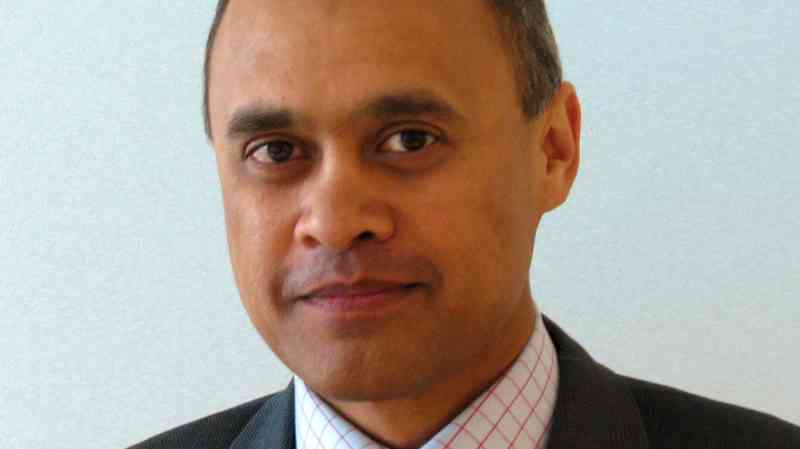Rachel Reeves’ charm offensive marred by riots and turmoil
A month after becoming Britain’s first female chancellor, Rachel Reeves set off on a three-day tour of North America. This week’s Plan A was to sell the country as a “safe haven” for international investors and financiers; in the event, the start of her charm offensive with Wall Street bosses, Canadian pension funds and clean energy companies was overshadowed by rioting in cities throughout the UK and the worst global stock market rout in more than two years.
It was, therefore, an inauspicious start for Reeves on her first big international trip, underscoring the vanishingly short “honeymoon” period enjoyed by a party that won a landslide election victory little more than a month ago.
In the run-up to the election, Reeves had said that Labour’s large majority would make the UK a rare island of political stability, in contrast with neighbouring France, which remains without a functioning parliament, and with the presidential election in the United States dominating the agenda in the world’s largest economy.
Last weekend’s riots did not fit that picture. On Monday Reeves dismissed the protesters’ “thuggery” and insisted that the images of police clashes and far-right chants would not tarnish Britain’s international reputation, which still “looks like a safe haven for investment. Businesses are looking again at Britain and seeing a government with its No 1 mission to grow the economy, bring good jobs and productivity to all parts of the country. They like that, especially in a world where other democracies are not perhaps embracing that stability.”
Yet they did tarnish Britain’s image, at least in the short term. Hours before Reeves landed in Toronto from New York on Wednesday morning, the Canadian government updated travel advice for its citizens, warning visitors about travelling to the UK during the riots. Nigeria, Malaysia, Indonesia and the United Arab Emirates did the same. Australia told its citizens to “exercise a high degree of caution in the UK due to the threat of terrorism”.
As if that wasn’t enough, the start of Reeves’ tour was marred, too, by turmoil in financial markets triggered by sudden fears of a recession in the US. UK assets were not spared from the selling. On Monday the FTSE 100 suffered its sharpest one-day fall since July 2023. Meanwhile, the pound was on course for its worst trading week in nearly a year. It all served as a reminder to the chancellor that the vicissitudes of financial markets, which affect Britain’s inflation and interest rate outlook, are not entirely in her control.
It was Reeves’ second trip to North America in just over a year, after a maiden trip last May where she marked herself out as a fan of “Bidenomics”, the Democratic Party’s funding of billions of dollars of tax credits for American clean energy companies. At that point, Labour was campaigning for a US-style “green prosperity plan” for the economy and still had a promise to spend £28 billion a year on climate investment, a commitment ditched in the run-up to the election amid worries about expanding government borrowing.

Speaking to leaders from Canadian clean energy companies on Wednesday, Reeves said that her message for investors and multinational corporations was focused on “three key pillars” of “stability, investment and reform”. A week after revealing a £22 billion overspend in the public finances for this year, Labour wants the private sector to do the heavy lifting to elevate growth to the “highest sustained rate in the G7”, a figure that officials say is in the 2 per cent to 3 per cent of GDP range over the next five years.
“We need investment and, like other governments, the UK is pretty fiscally hemmed in, with a GDP ratio of around 100 per cent of GDP,” Reeves said. “As a result, investment is to come primarily through the private sector. We really want to drive up those rates of private investment.”
The chancellor wasn’t able to announce new investments on the back of her trip, but she was firming up attendees for the government’s showcase international investment summit on October 14, two weeks before her maiden budget.
Reeves wants to get more data centres built around the UK funded by multinational firms, something that the government plans to supercharge as part of the plumbing underpinning the digital economy. Labour is pressing local authorities to approve investments, including a data facility in Buckinghamshire that has been on ice since 2020.
Data centres were also on the table when Reeves had a private dinner with Stephen Schwarzman, the chief executive of Blackstone, the private equity powerhouse, which could invest up to £10 billion centre in Blyth, Northumberland, on the site owned by Britishvolt, the former battery start-up. In addition to trying to do away with nimbyism in local authorities, Reeves also was confronted with Schwarzman’s complaints about building restrictions on his £80 million country estate in Wiltshire, which is also home to bats, a legally protected species.
Reeves met some of the titans of Wall Street, including senior executives from BNY, Barclays, Vanguard, Soros Fund Management, The Carlyle Group and Franklin Templeton. During a one-day tour in Toronto, she met up with Mark Carney, the former governor of the Bank of England who now chairs Brookfield Asset Management, one of Canada’s largest investment funds, and is an adviser on Labour’s National Wealth Fund. Reeves, who won a controversial endorsement from Carney last year, called the Canadian “a great man and a good friend of mine”.
One of the highlights of her trip was a discussion involving British officials and the “Maple 8”, a grouping of Canada’s largest pension funds, which Labour are eyeing as a gold standard for the UK’s local authorities to replicate. Labour wants to encourage a wave of consolidation among 86 defined-benefit pension schemes run by local councils in England and Wales, mimicking the Canadian example, where vast funds have outsized investments in international infrastructure projects, including in Britain’s water and utilities sector. However, the government is unlikely to force local authorities to merge their schemes and during the meeting some Canadian executives expressed concerns that Labour’s push could penalise Canada’s firms.
During her previous tour in 2023, Reeves made an explicit comparison between Labour’s ambitions and the policy levers used by Biden administration. This week she shied away from making any comments about the presidential race, fearing that her previous backing of the Democrats would leave the government scrambling in the event of a Donald Trump victory. Treasury officials are concerned that the UK’s decision not to follow the US in imposing tariffs on Chinese electric vehicles will be put under pressure by a bellicose Trump, who wants to put a 60 per cent levy on Chinese goods, and a 10 per cent tariff on goods for the UK and the rest of America’s trading partners.
In meetings with financiers, sources close to the chancellor said that American businesses were enthused by Labour’s focus on expediting planning permission and praised the UK’s hyper-centralised political system as a more efficient way to boost growth and investment, compared with the federal structure in the US. “American investors are probably more bullish about our ability to boost growth than we are at home,” one ally of the chancellor said.






